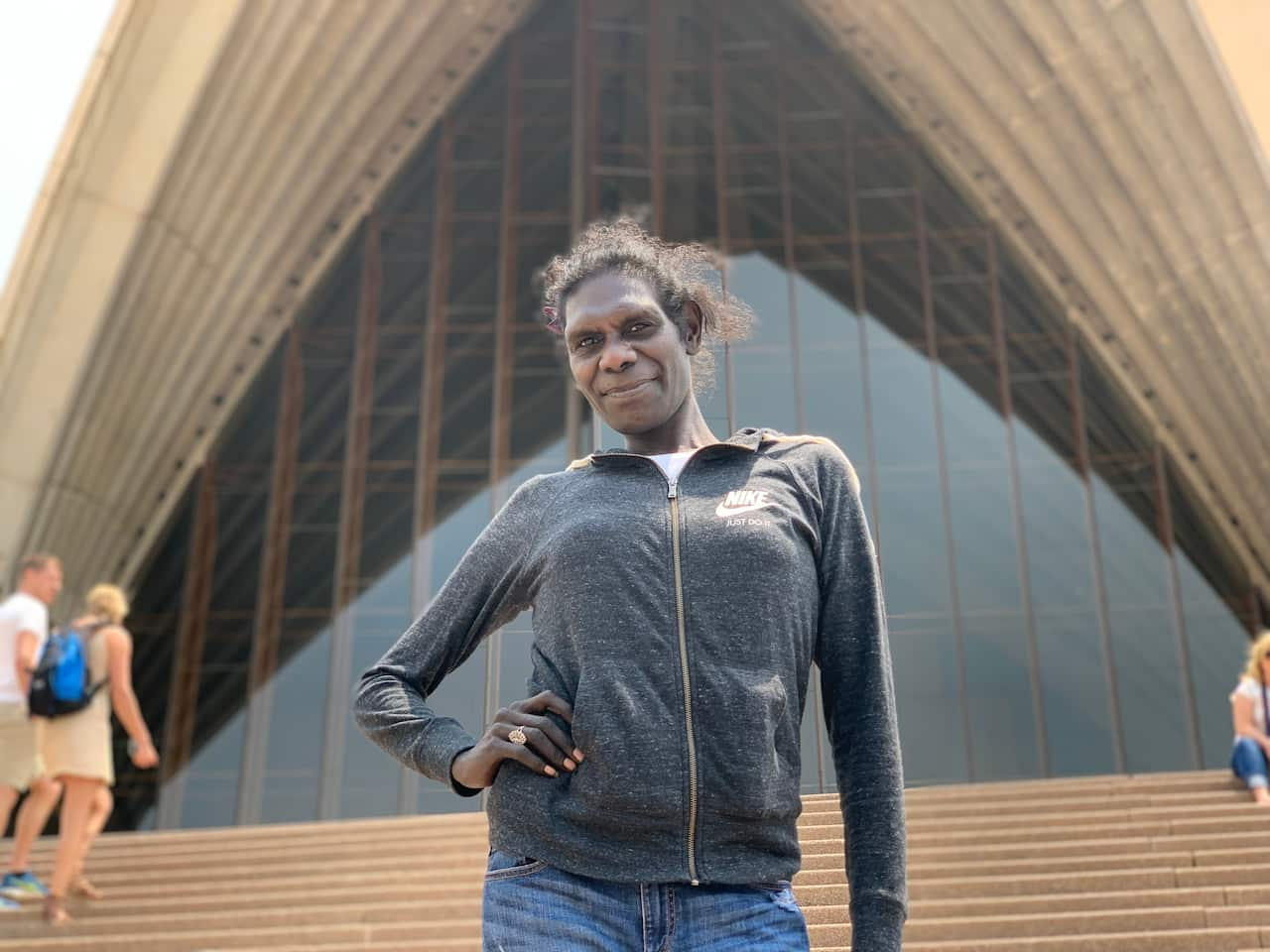For Tiwi Islands’ Sistergirls, being allowed to perform traditional women’s dances was the first major step in the fight for acceptance in the remote Northern Territory community.
Sistergirl is the term used for an Indigenous transgender person, but the word has come to represent a broader LGBTIQ+ mob.
“A lot of people aren’t familiar or are very out of place when someone calls them gay, transgender or lesbian, so we try to use Sistergirls as a respectful word,” Sistergirl dancer Shaniqua Kerinaiua says.
That respect has been hard-won.

Shaniqua Kerinaiua says the Tiwis are leading the way in accepting Sistergirls. Source: SBS News
After 15 Sistergirl suicides in the early 2000s, a community meeting was held where the Sistergirls asked Tiwi Elders for permission to perform traditional women’s dances.
“We agreed to have a big ceremony for all the Sistergirls who have taken their life. There gave us permission to dance with the ladies,” the 26-year-old from the Wurrumiyanga community says.
The meeting proved a turning point in the fight for acceptance.
“We haven’t had any Sistergirls lost in our community from that day we had that ceremony. So it’s kind of a relief that we’re on good terms now, and we thank our community and family for being involved and being supported for our identity and sexuality,” she explains.
“For those who don’t have family support, I think we are trying to be their family and support for other LGBTIQ Indigenous kids out there.”
Kerinaiua is one member of the dance group Tiwi SisterGALS (Gay and Lesbian Society) that hopes to spread the message of acceptance and love across the country.
After making their debut in the Mardi Gras parade in March, the group returned to Sydney to perform in the Indigenous dance competition Dance Rites at the Sydney Opera House on Saturday.
This weekend, they want to showcase their connection to culture.
“Dance Rites is a totally different thing to Mardi Gras. We’re trying to take every opportunity we can, and try and create better pathways for other indigenous LGBT mob that are struggling with identity struggling with community, struggling with language and culture.
“We are very lucky to have culture, language and our identity so we’re trying to show that the Tiwis are leading the way.”
They also hope to make an impact on the younger LGBTIQ+ generation.
“We have had a lot of kids coming up to see us and saying ‘I’ve seen you on the TV' or 'We’ve seen you on Mardi Gras' or 'Oh my god I want to be like you one day'.
"One day those younger generations could be strutting down Oxford Street. We’ll always be there for the young ones because at my age I’ve seen a lot of hardship and death in the trans community and I don’t want the younger generation to go through that situation."

Laura Orsto strikes a pose in front of the Sydney Opera House. Source: SBS News
There are still difficulties for Sistergirls living in regional and remote Australia.
Another Tiwi SisterGALS member Laura Orsto says she had to move to Sydney to make her transition.
“Living in the community is hard to access hormones and you have to move away, somewhere you can get the access to the hormones. Finally that I'm here, having my hormones, I'm happy,” the 35-year-old says.
“In the future, I’d like to see hormone treatment access for those girls instead of running away from home.”


